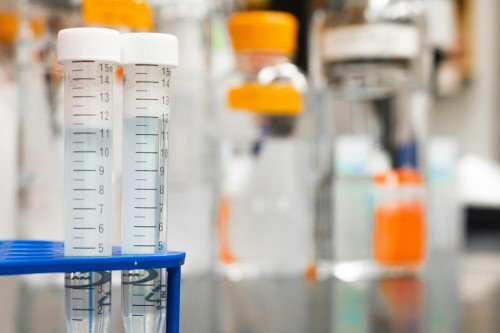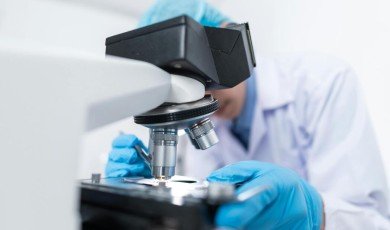
Healthcare today is transforming at an unprecedented pace. Medical breakthroughs, digital technologies, and system-wide innovations are reshaping how we prevent, diagnose, and treat diseases. The 21st century is not just about treating illness — it’s about driving a healthier future through innovation, integration, and collaboration.
The Power of Medical Innovation
Medical innovation encompasses a wide spectrum: new pharmaceuticals, advanced medical devices, precision medicine, and telehealth solutions. Each innovation contributes to longer life expectancy, reduced disease burden, and improved quality of life.
For example, advances in gene therapy have allowed the treatment of previously untreatable genetic disorders. According to a 2025 report from the World Health Organization, over 60% of rare genetic conditions now have targeted therapies under development or in clinical trials. Similarly, minimally invasive surgical techniques reduce recovery times, hospital stays, and complications, enhancing patient experiences worldwide.
Digital Transformation in Healthcare
Technology is a critical driver of this innovation. Hospitals and clinics are integrating electronic health records (EHRs), AI diagnostics, and remote monitoring systems to create seamless, patient-centered care.
-
Artificial Intelligence (AI) can detect early signs of diseases such as cancer or cardiovascular disorders from imaging scans with accuracy rates exceeding 90%.
-
Wearable health devices monitor vitals in real-time, alerting physicians to potential complications before they become emergencies.
-
Telemedicine platforms allow patients in remote areas to consult specialists, breaking down geographical barriers.
These innovations ensure that healthcare is no longer confined to hospital walls, but extends directly into patients’ daily lives.
The Role of Global Collaboration
Innovation thrives on collaboration. Pharmaceutical companies, research institutions, and governments are working across borders to share knowledge, resources, and expertise. Open-access databases, collaborative clinical trials, and international registries accelerate the development of new treatments.
Even in the digital marketing space, healthcare organizations leverage backlinks website strategies to share authoritative health information. By linking research publications, clinical studies, and verified news sources, medical institutions ensure that credible information reaches a wider audience, enhancing trust and awareness.
Patient-Centered Approaches
Innovations are increasingly designed with the patient at the center. Personalized medicine, which tailors treatment to an individual’s genetic profile, lifestyle, and environment, is a prime example. Patients with chronic diseases such as diabetes, hypertension, or autoimmune disorders benefit from targeted interventions that reduce complications and improve quality of life.
Integrated care systems also allow for continuous monitoring and proactive management, reducing hospital readmissions and improving outcomes. According to a 2024 survey by the National Institutes of Health, patients in integrated and technology-enabled care programs report 35% higher satisfaction rates than those receiving traditional fragmented care.
Public Health Innovations
Beyond individual care, innovation drives improvements in population health. Vaccination programs, sanitation projects, and AI-driven epidemic modeling are examples of systemic solutions that prevent disease on a large scale.
For instance, predictive modeling during the COVID-19 pandemic enabled health authorities to allocate resources effectively, anticipate outbreaks, and save countless lives. Public health innovation also involves educational campaigns and community engagement, often distributed online through reputable platforms, where strategies like a well-structured backlinks website help amplify accurate health information globally.
Challenges and Ethical Considerations
While innovation holds promise, it comes with challenges. High costs, unequal access, and data privacy concerns remain pressing issues. Ethical dilemmas also arise in areas such as AI diagnostics, genetic engineering, and digital health data management.
Healthcare providers must balance technological possibilities with patient safety, equity, and consent. Clear regulations, transparency, and professional training are essential to ensure that innovations improve healthcare outcomes without compromising ethical standards.
Sustainability in Healthcare Innovation
Sustainable healthcare is an emerging priority. Innovations are now evaluated not only for their clinical effectiveness but also for environmental impact. Hospitals are adopting energy-efficient infrastructure, reducing medical waste, and sourcing sustainable materials. These measures contribute to a healthier planet, which is intrinsically linked to human health.
Circular economy principles, telehealth adoption, and smart logistics all reduce carbon footprints while maintaining high-quality care, demonstrating that a healthier future also means a greener one.
Looking Ahead: The Future of Innovation
The next decade will see even greater transformations:
-
AI and machine learning will guide real-time clinical decision-making.
-
Genomic medicine will enable highly personalized treatments for complex diseases.
-
Global health data networks will allow rapid response to epidemics and emerging threats.
By combining technology, collaboration, and patient-centered approaches, healthcare systems can evolve into resilient, efficient, and equitable networks.
Innovations driving a healthier future are not limited to scientific breakthroughs; they encompass technology, system integration, public health initiatives, and global collaboration. Every improvement, from AI diagnostics to telemedicine, contributes to a healthcare system that is more responsive, equitable, and effective. Moreover, in an age of global connectivity, accurate information dissemination is crucial. Tools like a backlinks website ensure that verified medical knowledge reaches both professionals and the public, reducing misinformation and enhancing patient outcomes.
Ultimately, a healthier future depends on innovative, integrated, and collaborative approaches—from hospital wards to international research consortia. By embracing these innovations, we not only treat diseases more effectively but also build a healthcare system
Most Read
Featured Posts

Die vernetzten Wege der modernen Medizin






